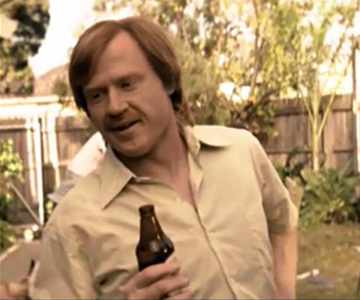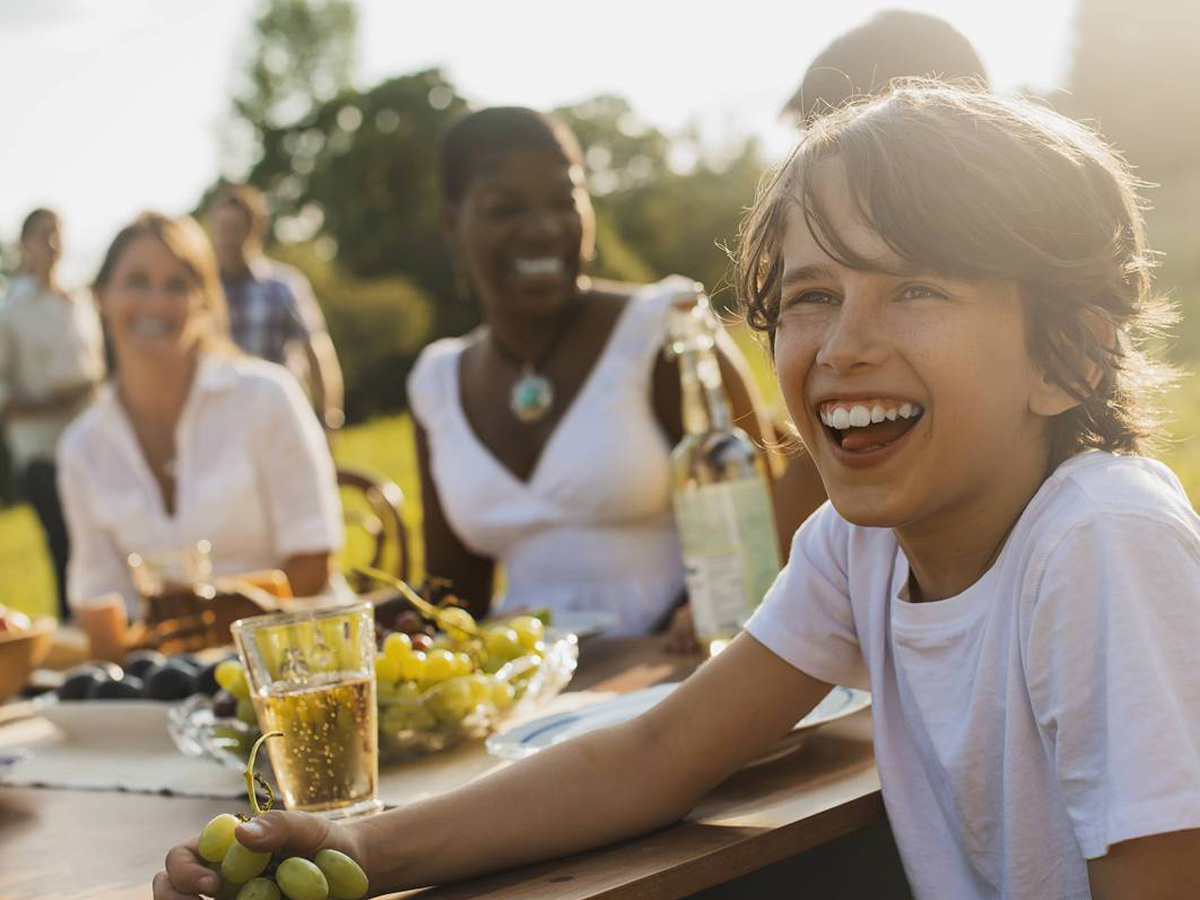Talking to your teen about alcohol
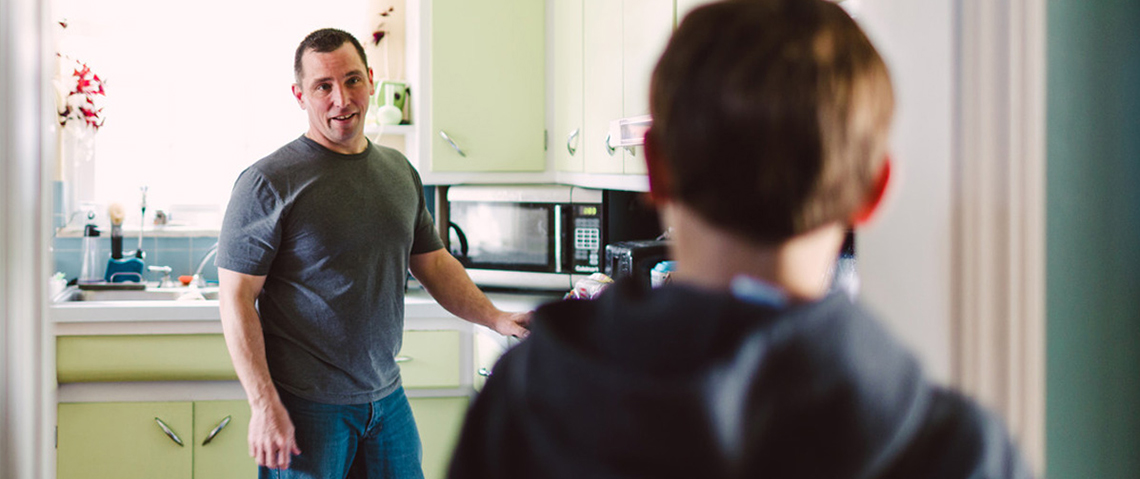
For some parents, talking to their teenager about alcohol can be tricky and daunting. However, no matter how overwhelming these conversations are, setting rules and boundaries to keep them safe is vital. Talk to your teenager early and often to help them understand why not drinking alcohol is a smart choice.

According to renowned adolescent psychologist, Dr Michael Carr-Gregg (pictured left), “it’s vital that parents keep the lines of communication open through the teenager years and to make sure you are having open and honest discussions about alcohol”.
“My advice to parents is to start the conversation around alcohol early and have it often so you can help your underage teenagers make the smart choice and say no to drinking alcohol” Dr Carr-Gregg said.
Tips for talking to your teenager
Be prepared to both talk and listen, discuss rather than lecture
Your teenager will raise the topic of alcohol if and when they’re ready to talk. Many teens initially talk with peers about drinking, rather than family. This is normal. Let them know that you are always available to talk with them, and be ready to have a conversation. Listen to them and address their questions – that’s when they will be most open to your thoughts. You can plan some of what you want to say ahead of time.
However, don’t just wait for them to speak to you. If they find themselves in a situation where they could be offered alcohol, e.g. party invitation or a formal, talk to them beforehand. You can tell them your expectations that they shouldn’t be drinking at their age and help them understand why.
Do your research – be armed with the facts e.g.:
- The legal drinking age in Australia is 18 years old.
- 89% of parents aren’t giving their underage teenagers alcohol.1
- 69% of teenagers aged 14-17 years are choosing not to drink alcohol.2
- Underage teenagers who are supplied with alcohol are more likely to experience alcohol-related harm, binge drinking and problematic drinking in their future years.3,4
- Your teenager’s brain is still growing – the frontal lobe and hippocampus are the parts of the brain that control motivation, impulse control and addiction. They develop most dramatically during the teenage years. Drinking alcohol while this growth is happening can disrupt your child’s brain development and even damage their brain.
- From a psychological perspective, alcohol can impact teenagers in four main ways:
- The key developmental task of making friends. Alcohol can really disrupt that process, quite often putting them in a situation where they’re hanging out with young people who are more prone to take risks. This could lead them to also engage in more risk-taking behaviours. The research shows that following serves of alcohol, teenagers are more likely to report binge drinking, experience alcohol-related harm such as accidents, blackouts, be involved in fights or problematic drinking in their future adolescent years.3,4
- The impact on school. We know that underage kids who drink alcohol don’t do as well academically.
- We know that alcohol causes huge problems for teenagers. They’re much more likely to have depression, anxiety and conflict.
- And lastly, it impacts on their very ability to answer the questions: Who am I? Am I normal? And where am I going?
- Visit It’s okay to say nay for more stats, details on the secondary supply laws in your state and links to advice.
Pick your time
It’s a good idea to choose a safe space and time to talk to your child about alcohol.
The car can be a great space for constructive conversations. In the car, you have a captive audience – you and your teen are less likely to shy away from the conversation. Talking side by side rather than face on can be less awkward or intense.
Other potential teachable moments can be at events, like:
- the footy
- a concert
- while you’re cooking dinner together.
A moment might arise in real life that will give you a hook for having the conversation – there might be something that’s on television that relates to alcohol.
Challenge unfounded statements
If your teenager tells you that ‘everyone else’s parents are giving them alcohol’ or ‘everyone else drinks’, show them the research:
- Most Australian parents (89%)2 aren’t supplying their underage teenagers with alcohol.
- The majority of underage teenagers in Australia are choosing not to drink alcohol (69%).1
You can remind them the Australian National Health and Medical Research Council (NHMRC) guidelines recommend that to reduce the risk of injury and other harms to health, people under 18 years of age should not drink alcohol.
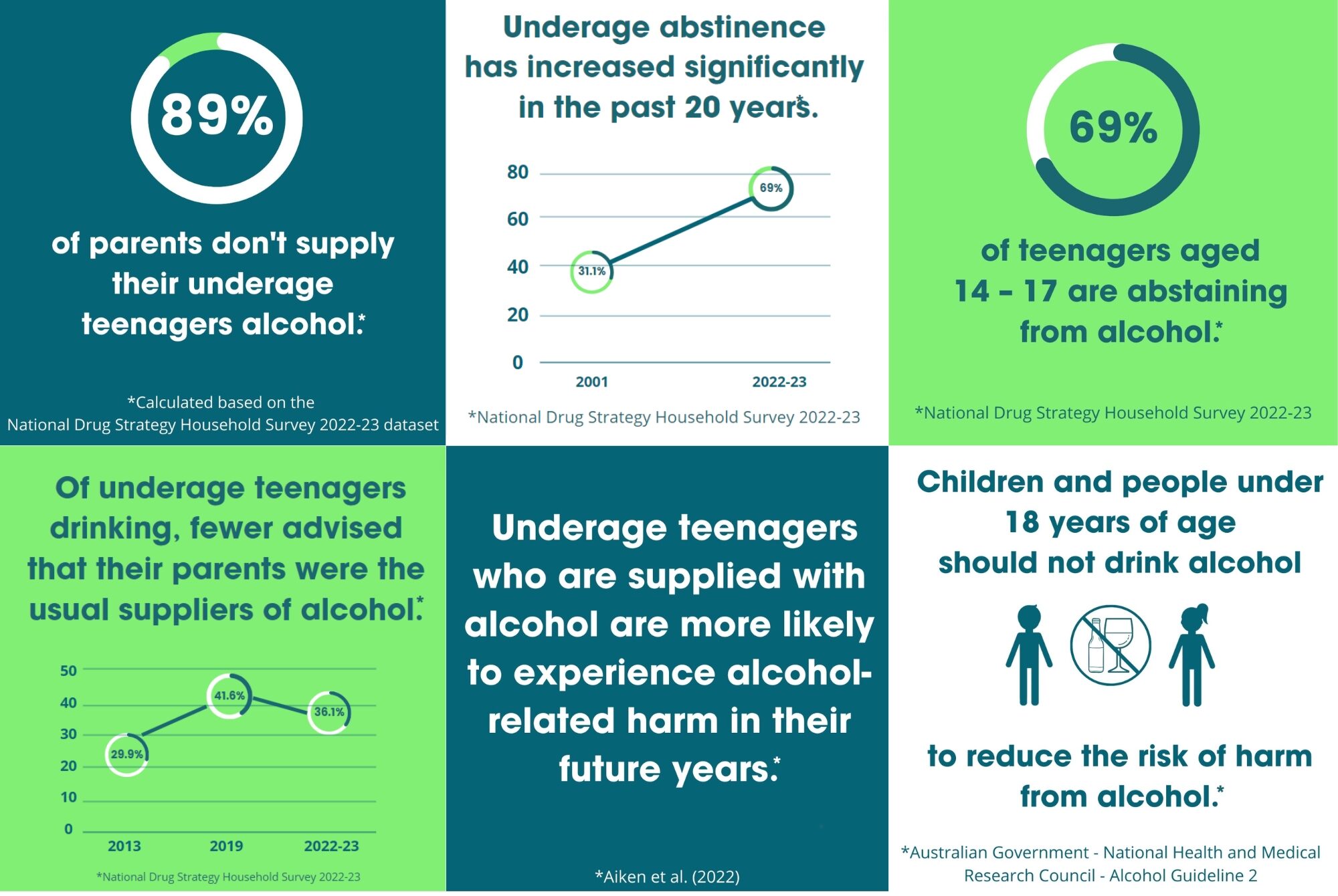
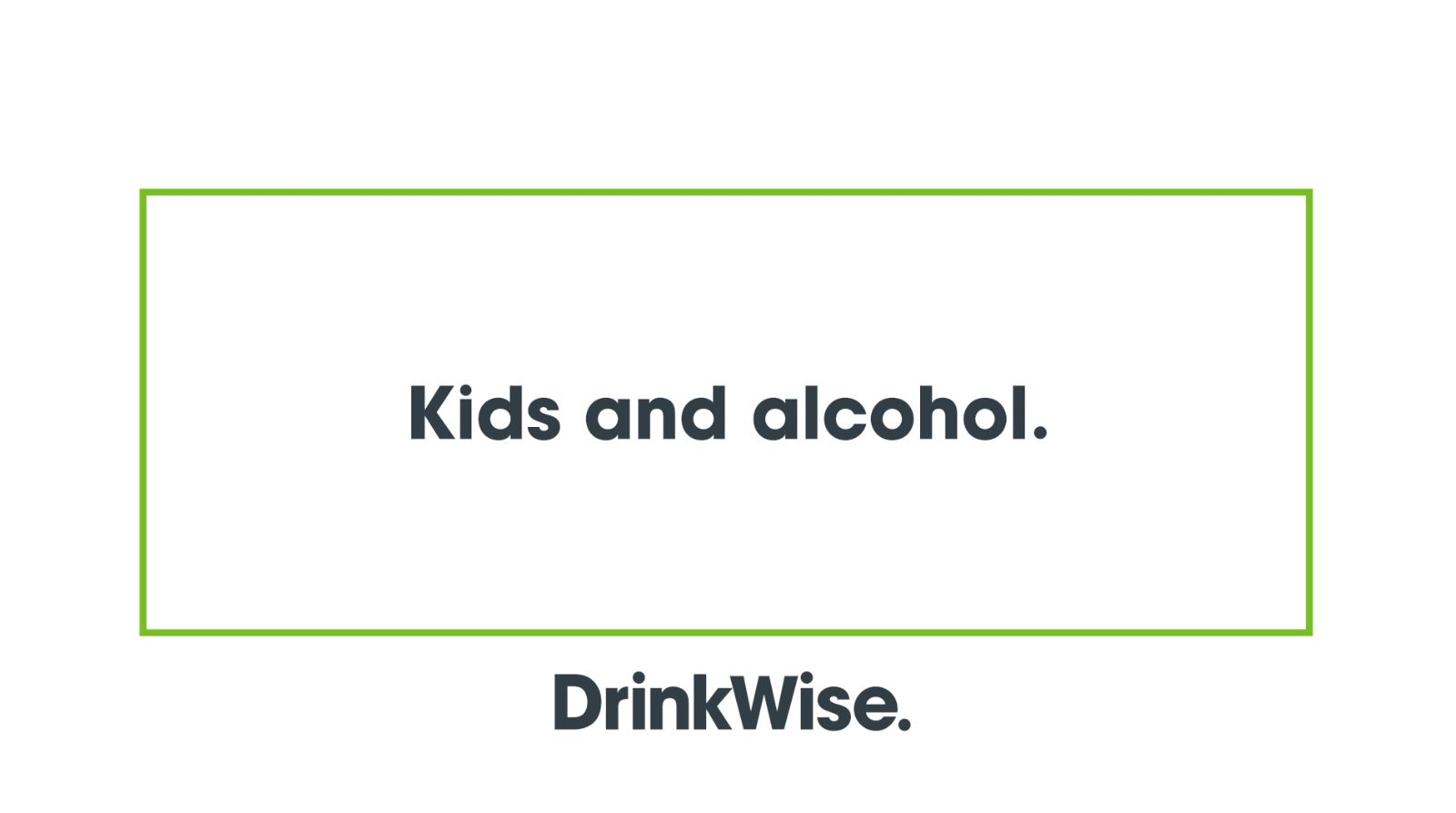

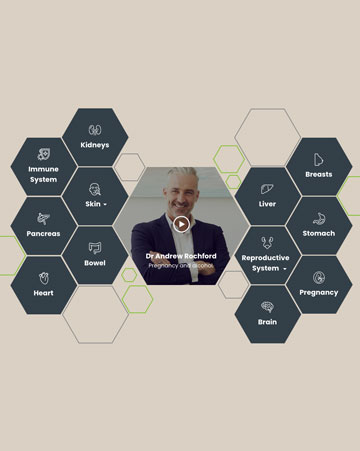

 Audio
Audio Video
Video